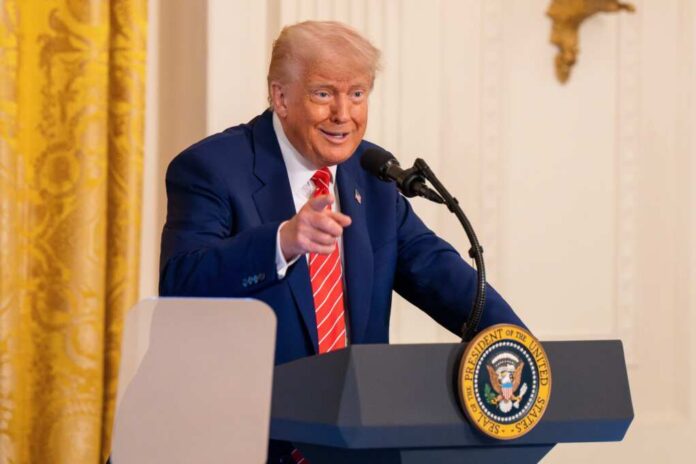
President Donald Trump has launched a bold new missile defense program—code-named “Golden Dome”—to deploy space-based interceptors and complete Ronald Reagan’s long-deferred vision of strategic missile protection.
At a Glance
- Trump announced a $175 billion missile defense program named “Golden Dome”
- The system will include space-based interceptors to counter global threats
- U.S. Space Force General Michael Guetlein appointed to lead the project
- Initial $25 billion funding approved; full deployment expected by 2029
- China condemned the initiative, warning of strategic instability
Orbital Defense Revival
Announced on May 20, 2025, Trump’s “Golden Dome” missile defense system aims to defend the U.S. homeland from incoming missile threats—including hypersonic, ballistic, and cruise weapons—by placing interceptor platforms in orbit. The program echoes President Reagan’s Strategic Defense Initiative from the 1980s but applies modern technology and urgency to today’s multi-polar security threats.
General Michael Guetlein of the U.S. Space Force will oversee the project’s implementation. Congress has already authorized an initial $25 billion to begin development, with the full $175 billion budget phased over four years. Trump vowed the system would be partially operational by the end of his current term.
Watch a report: Trump Unveils Golden Dome Missile Defense Plan.
Ambition Meets Arms Control Anxiety
The “Golden Dome” will be the first U.S. initiative to field active missile interceptors in space. Inspired in part by Israel’s Iron Dome, the U.S. version would operate on a planetary scale, intercepting long-range threats during boost and midcourse phases. According to analysts, the project represents a seismic shift in American defense strategy.
But experts warn of the risks. Critics say the deployment of space-based weapons could trigger a new arms race. The Economic Times noted that orbital interceptors could invite tit-for-tat deployments by adversaries, further destabilizing global security balances.
China Warns of Escalation
Beijing wasted no time condemning the plan. Chinese officials issued sharp warnings, calling the initiative “a threat to strategic stability” and urging Washington to abandon what it called a “provocative space militarization agenda.” The Chinese Foreign Ministry said it would take “all necessary steps” to safeguard its national interests.
Despite the criticism, the Trump administration insists the program is defensive, not aggressive, and essential in an age of rapid missile proliferation. As work begins, “Golden Dome” may redefine the future of conflict—not just on Earth, but in orbit.




















